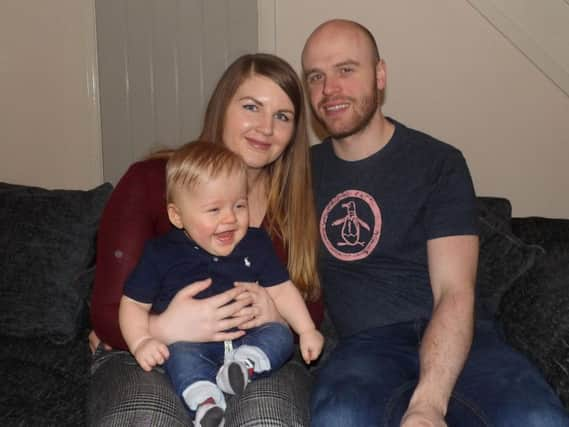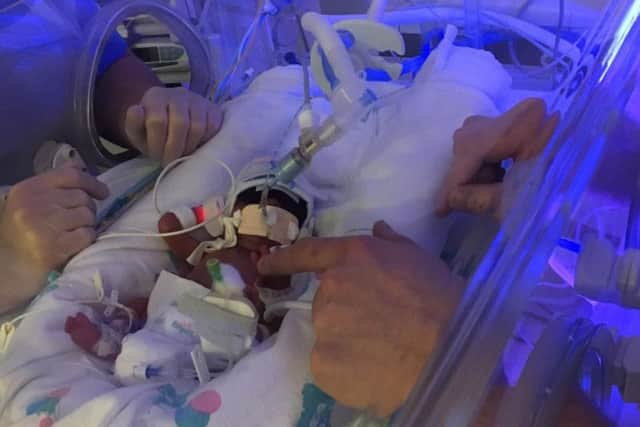Parents' pride at taking part in clinical research to help premature babies


Harry Murdoch was born to Stephanie George ( 27) and Lee Murdoch (30) at Lancashire Women and
Newborn Centre, in Burnley General Teaching Hospital, on November 16th, 2016.
Advertisement
Hide AdAdvertisement
Hide AdHaving enjoyed a normal pregnancy, Stephanie was expecting to give birth around the typical due date of 40 weeks.


It was her first child and the couple had no family history of premature births.
However, with little warning, Harry was born at only 24 weeks and five days – putting him in the
category of “extremely pre-term”.
Most babies born following a standard pregnancy will weigh between 5lbs 8oz (2,500 grams) and


8lbs 13oz (4,000g). But Harry weighed only 1lb 14oz (870g).
Advertisement
Hide AdAdvertisement
Hide AdFrom the outset, he was treated for a range of complications in the Neonatal Intensive Care Unit
(NICU).
These included bleeds on the brain, sepsis, meningitis and a disease of the eye called Retinopathy of
Prematurity (ROP).
Harry also required 10 blood transfusions and a platelet transfusion.
Stephanie and Lee were told their son had only a 50-50 chance of survival, while doctors also had to
Advertisement
Hide AdAdvertisement
Hide Admake them aware most surviving 24-week pre-terms have lasting disabilities.
Stephanie, a student nurse, said: “We were terrified and didn’t know if he would live. We were given
the statistics and the doctors had to be completely honest with us.
“He had reams of medical problems and it was like every body system was encountering problems
Advertisement
Hide AdAdvertisement
Hide Adbecause Harry’s body was effectively being used way too early.”
Shortly after the birth, one of NICU’s research nurses approached Stephanie and Lee about the
possibility of Harry taking part in a research study called Planet-2.
Planet-2 is an abbreviation for Platelets for Neonatal Transfusion 2. It is part of the National Institute
Advertisement
Hide AdAdvertisement
Hide Adfor Health Research (NIHR) Clinical Research Network (CRN) portfolio of studies being carried out to
constantly improve treatments and patient outcomes.
This particular study is helping medics to better understand when to give transfusions of platelets to
premature babies with low platelet counts.